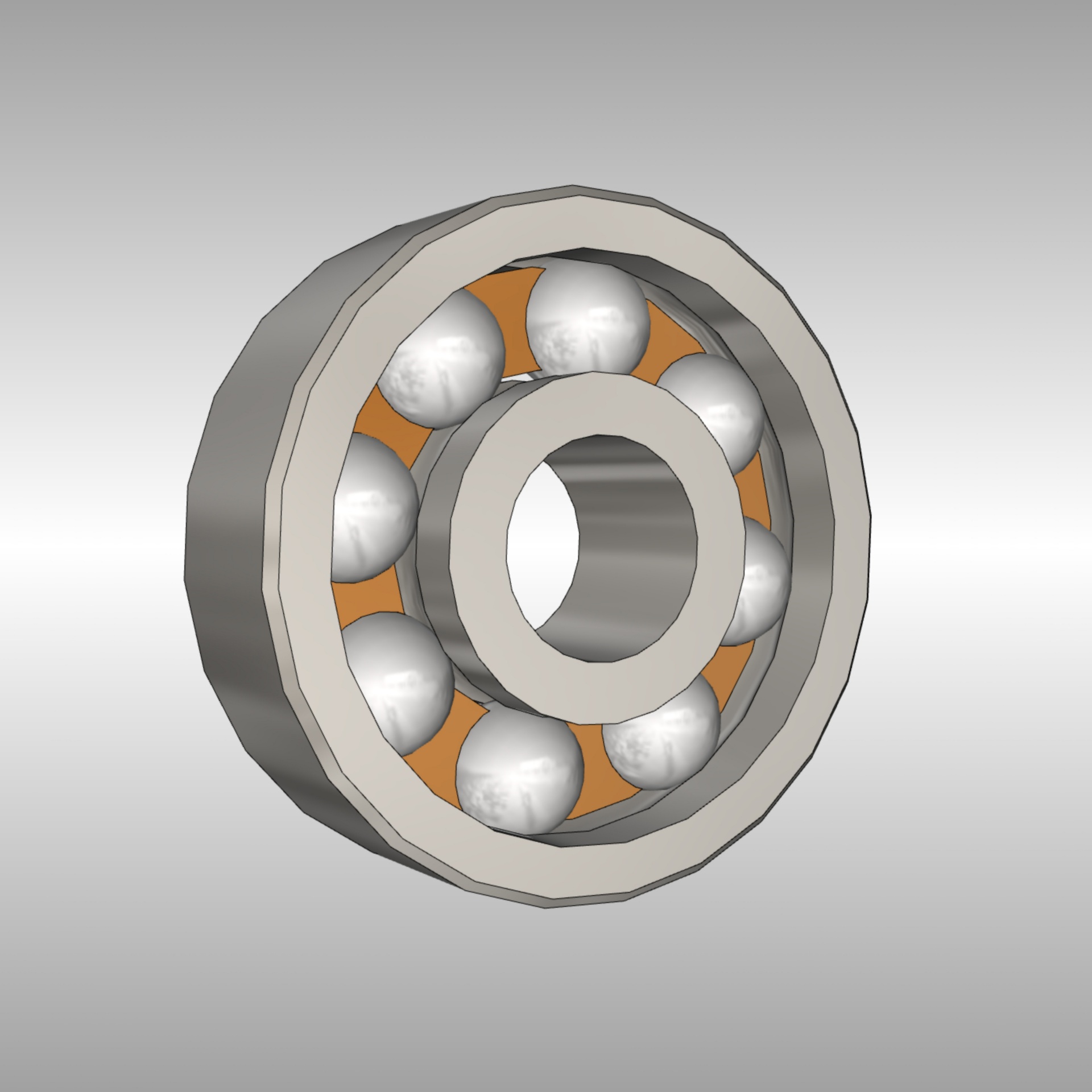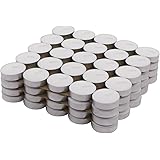When it comes to ball bearings balls, the material used for the balls plays a crucial role in determining their performance, durability, and suitability for specific applications. Stainless steel is a popular choice for many bearings due to its corrosion resistance and overall durability. But can stainless steel ball bearings handle high-load applications effectively? Let’s dive into the details to find out.
Understanding Stainless Steel in Ball Bearings balls
What Is Stainless Steel?
Stainless steel is an alloy composed primarily of iron, chromium, and sometimes nickel, with varying amounts of other elements. Its primary feature is its resistance to rust and corrosion, which makes it an attractive option for ball bearings balls used in harsh environments.
Key Properties of Stainless Steel
- Corrosion Resistance: Stainless steel is highly resistant to oxidation and corrosion, making it ideal for wet or chemically aggressive environments.
- Strength: While strong, stainless steel typically has lower tensile strength compared to high carbon chrome steel.
- Durability: Stainless steel bearings can handle a range of operational stresses but may not be as durable under extremely high loads.
High-Load Applications and Bearing Requirements
What Constitutes a High-Load Application?
High-load applications are those where the bearing is subjected to significant forces or stresses. This can include industrial machinery, automotive systems, and heavy equipment, where the bearings must support substantial weights and endure continuous stress.
Requirements for High-Load Bearings
- High Tensile Strength: The material must be strong enough to withstand the high stresses.
- Wear Resistance: It should resist degradation over time due to friction and stress.
- Impact Resistance: The bearing needs to absorb and distribute impact forces effectively.
Stainless Steel vs. Other Bearing Materials
Comparing Stainless Steel to High Carbon Chrome Steel
High carbon chrome steel is often preferred for high-load applications due to its higher tensile strength and better wear resistance. Here’s how it stacks up against stainless steel:
- Strength: High carbon chrome steel generally has higher tensile strength, making it more suitable for high-load conditions.
- Wear Resistance: It offers better resistance to wear and fatigue under high stress.
- Cost: High carbon chrome steel is usually less expensive than stainless steel.
Ceramic Bearings: A Comparative Option
Ceramic bearings, which combine ceramic and steel, provide superior performance in high-load and high-temperature environments but come at a higher cost. They offer:
- Exceptional Hardness: Superior to both stainless and high carbon chrome steel.
- Temperature Tolerance: Better performance under extreme temperatures.
- Cost Efficiency: Higher initial cost but potentially lower long-term maintenance costs.
Suitability of Stainless Steel Bearings for High-Load Applications
Advantages of Stainless Steel Bearings
- Corrosion Resistance: Ideal for environments where moisture or chemicals are present.
- Low Maintenance: Requires less maintenance due to its resistance to corrosion.
- Longevity: Can offer good service life in less demanding conditions.
Limitations in High-Load Scenarios
- Lower Strength: May not handle high loads as effectively as high carbon chrome steel.
- Potential for Deformation: Under extreme loads, stainless steel bearings might deform or fail faster than their high-strength counterparts.
- Heat Sensitivity: Stainless steel can become less effective in extremely high temperatures.
Applications Where Stainless Steel Bearings Shine
Corrosive Environments
Stainless steel bearings are ideal for applications where exposure to water, chemicals, or other corrosive substances is a concern. Examples include:
- Marine Equipment: Boat motors and underwater machinery.
- Food Processing: Equipment where hygiene and resistance to cleaning agents are essential.
- Medical Devices: Instruments requiring high cleanliness standards.
General-Purpose Use
For many standard applications with moderate loads, stainless steel bearings offer a good balance of performance and cost. They are commonly used in:
- Home Appliances: Washing machines, fans, and other household devices.
- Office Equipment: Printers and scanners where high load is not a critical factor.
- Light Industrial Machinery: Conveyor systems and light-duty manufacturing equipment.
Conclusion
While stainless steel ball bearings balls are excellent for environments where corrosion resistance is crucial, they may not always be the best choice for high-load applications. High carbon chrome steel and ceramic bearings typically offer better performance under substantial stress. However, stainless steel bearings provide valuable benefits in terms of durability and maintenance in less demanding scenarios. Assessing your specific needs, including load requirements and environmental conditions, will help you determine if stainless steel bearings are suitable for your application.
FAQs
1. Can stainless steel bearings be used in high-load machinery?
While they can be used in high-load machinery, stainless steel bearings may not perform as well as high carbon chrome steel under extreme loads due to their lower tensile strength.
2. What are the main advantages of using stainless steel bearings?
Stainless steel bearings offer excellent corrosion resistance, low maintenance, and durability in environments exposed to moisture and chemicals.
3. Are there alternatives to stainless steel bearings for high-load applications?
Yes, high carbon chrome steel and ceramic bearings are typically better suited for high-load applications due to their superior strength and wear resistance.
4. How does the cost of stainless steel bearings compare to other materials?
Stainless steel ball bearings balls are generally more expensive than high carbon chrome steel but may be less costly than ceramic bearings. The cost should be weighed against the performance benefits.
5. In what environments are stainless steel bearings most effective?
Stainless steel ball bearings balls are most effective in environments where corrosion resistance is essential, such as marine, food processing, and medical applications.
Recron Certified Dream Fibre Pillow (41X61, Fiber;Microfiber, White, Pack Of 2)
₹349.00 (as of 21 October, 2024 18:22 GMT +05:30 - More infoProduct prices and availability are accurate as of the date/time indicated and are subject to change. Any price and availability information displayed on [relevant Amazon Site(s), as applicable] at the time of purchase will apply to the purchase of this product.)Ezee Black Garbage Bags for Dustbin | 90 Pcs | Medium 19 X 21 Inches | 30 Pcs x Pack of 3
₹149.00 (as of 21 October, 2024 18:22 GMT +05:30 - More infoProduct prices and availability are accurate as of the date/time indicated and are subject to change. Any price and availability information displayed on [relevant Amazon Site(s), as applicable] at the time of purchase will apply to the purchase of this product.)Luxurious Urban Set of 3 Urli Bowl tealight Holder Stand Diwali Home puja Decor Traditional Indian Brass Decorative Bowl for Home | Ideal for Floating Flowers (Taj Stand Set), (Gold-3)
₹370.00 (as of 21 October, 2024 18:23 GMT +05:30 - More infoProduct prices and availability are accurate as of the date/time indicated and are subject to change. Any price and availability information displayed on [relevant Amazon Site(s), as applicable] at the time of purchase will apply to the purchase of this product.)Desidiya® Bottle Lights with Cork - Mini Copper Wire Battery Operated String Decorative Fairy Lights with 20 LEDs (Warm White) - Pack of 1
₹28.00 (as of 21 October, 2024 18:22 GMT +05:30 - More infoProduct prices and availability are accurate as of the date/time indicated and are subject to change. Any price and availability information displayed on [relevant Amazon Site(s), as applicable] at the time of purchase will apply to the purchase of this product.)Amazon Brand - Solimo Wax Tealight Candles, 3-Hour Burn Time, Smokeless, No Residue (Set of 100, Unscented)
₹279.00 (as of 21 October, 2024 18:22 GMT +05:30 - More infoProduct prices and availability are accurate as of the date/time indicated and are subject to change. Any price and availability information displayed on [relevant Amazon Site(s), as applicable] at the time of purchase will apply to the purchase of this product.)Discover more from The General Post
Subscribe to get the latest posts sent to your email.





